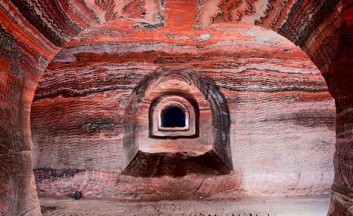‘Big Politics’ crashed in potash exports
 The situation has not changed
The situation has not changed

On July 29th, Uralkali announced split from Belarusian Potash Company. The statement said that Russian exports of potassium chloride would be redirected via own trader – Uralkali Trading.
Potentially, Uralkali’s split from BPC was coordinated at the Russia’s top political level and will be used as an additional pressure lever on Belarus. Russia aims at convincing Belarus to implement integration and privatization agreements unconditionally.
Uralkali explained its decision by Belarus’ violating its cartel agreements. In particular, they referred to President’s Decree No 566 of December 22nd, 2012 on the abolition of the BPC exclusive rights to export Belarusian potash. Belarus seemed to have decided to use Brazilian market to test new alternative sales channels, which particularly annoyed Russian partners.
On July 25th, President Lukashenko appointed new BPC Head, Elena Kudryavets and said that the appointment was important for potash sales policy. “We should not in any way lose the Russian company, because together we are the most powerful potash exporter if we cooperate with Russians. But we need to remember about our own interests, because Russian partner is a private company. State and private owners’ objectives do not always match”, the President said.
The conflict between BPC and Uralkali developed in 2012, when potash market started shrinking and prices dropped. Private company Uralkali insisted on business optimization, proposing to cut supplies to stabilize prices. Belarus, acting in “public interest” sought to prevent significant reduction in currency proceeds and was ready to increase exports volumes to compensate price cuts.
Negotiations between the two partners were carried out at the highest level: President Lukashenko at least twice discussed the issue with Uralkali’s owner Kerimov. A special bilateral commission was set up but apparently was a failure.
Potash exports are crucially important for Belarus and current situation may seriously harm Belarus’ international trade. Belaruskali and Uralkali not only lose the opportunity to coordinate price policy, but actually become competitors in Chinese, Indian and Brazilian markets. That is, Belarus’ currency proceeds will drop duet to the projected price drop in Q3 and Q4 2013 from USD 400 to USD 300 per ton and due to the likely reduction in sales volumes. Moreover, on July 30th, Uralkali announced a new marketing strategy – increased supply volume. They want to stimulate the world demand by reducing potassium chloride prices. For example, in 2013, Uralkali plans to increase sales up to 10.5 million tons, in 2014 – up to 13 million tons and in 2015 – up to 14 million tons.
In the meanwhile, for Uralkali, divorce with the BPC also had a negative impact (BPC is the largest global potash trader, accounting for 43% of the market). On July 30th, Uralkali’s stocks and GPR prices crashed on the Moscow and London stock exchanges (up to 24%).
Uralkali’s divorce from BPC could be coordinated at the Russia’s highest political level and might be used to pressure Belarus’ authorities in order to convince them to implement privatization and integration agreements unconditionally. Russia may succeed against the background of overall incidence of Belarusian exports, due public debt payments and the lack of resources or new loans, threatening to destabilize the domestic forex market.
Uralkali is unlikely to return to the BPC, even if Belarus promises to abandon alternative distribution channels using price dumping. However, the cooperation may be resumed within joint Swiss trader Soyuzkali on the condition that Russia takes part in Belaruskali privatization.
Subscribe to our newsletter




Situation in Belarus
Constitutional referendum: main consequences


 Video
Video
How to count the political prisoners: are the new criteria needed?


 Video
Video
Paternalism In Decline, Belarusian Euroscepticism, And The Influence Of Russia


 Video
Video












